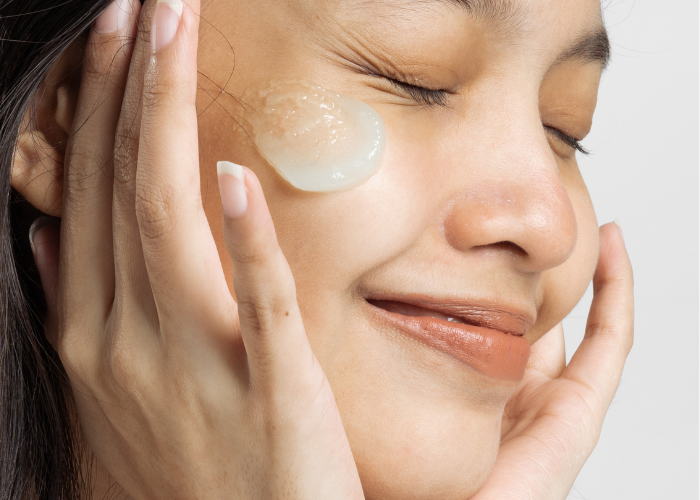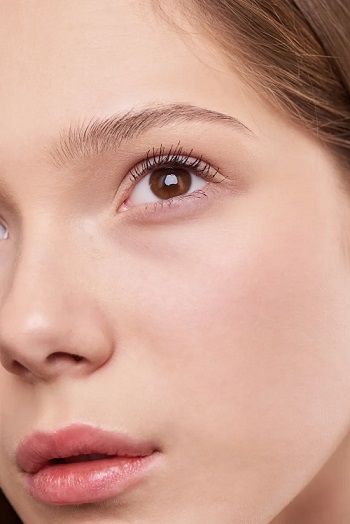Skincare trends come and go, but the ingredients that dermatologists continually recommend are the ones worth paying attention to. These ingredients don’t just moisturize or cleanse; they support the skin barrier, offer anti-inflammatory benefits, and help defend against everyday environmental stressors. We asked skincare professionals to identify the natural ingredients that show real promise for healthy, balanced skin. Here are the seven that rose to the top in 2025.
1. Grass-Fed Tallow
Derived from grass-fed, grass-finished cattle, this ingredient mimics the natural oils found in human skin, making it uniquely bioavailable and effective.
Dr. Anna Chacon, board-certified dermatologist, explains, “Tallow is a natural substance that contains highly moisturizing lipids, allowing it to penetrate the skin effectively while forming a protective barrier.”
Used in Evil Goods products, tallow offers body-safe nutrition that is fast absorbing and deeply nourishing. Unlike seed oils or synthetic moisturizers that can clog pores or include toxic fragrances, tallow-based creams and lotions are free of fluff and toxins, allowing your skin to breathe and regenerate naturally.
Evil Goods offers a range of products harnessing this pure and potent ingredient for real results, especially in skin-barrier repair and hydration. Learn more at Evil Goods online.
2. Manuka Honey
Highly regarded by dermatologists and skincare enthusiasts alike, manuka honey is more than a kitchen staple. It’s prized for its antibacterial, antimicrobial, and antioxidant properties. According to Kiehl’s Skin Expert Advice, “Manuka honey boasts a slew of beauty benefits. It’s high concentration of antioxidants, vitamins, and minerals, like vitamin B3, potassium, and zinc, makes it highly valued for addressing minor skin irritations and concerns, like acne.”
Manuka honey also acts as a humectant, which means it draws moisture into the skin, helping it stay soft, plump, and hydrated. It pairs beautifully with other barrier-supportive ingredients, making it a must-have for anyone looking to calm, balance, and fortify their skin without resorting to synthetic fillers or artificial fragrances.
Evil Goods incorporates manuka honey into its formulations for its gentle yet powerful properties that support both dry and acne-prone skin.
3. Cold-Pressed Olive Oil
Olive oil has been used in skincare for centuries, and dermatologists still back its benefits in 2025. Cold-pressed varieties retain more nutrients, which is why they remain a top pick for topical application.
Dr. Jenny Liu, a practicing dermatologist, notes: “Olive oil is rich in fatty acids like Omega-3, squalene, polyphenols, and vitamins A, D, E, and K… Applying olive oil topically as a skin moisturizer can maximize potential skin benefits, reducing signs of aging.”
Unlike many plant-based oils used in skincare, cold-pressed olive oil offers deep hydration without synthetic additives or seed oils that can cause inflammation or breakouts in sensitive individuals. It’s one of the key ingredients used in Evil Goods’ organic formulations, where its purity and simplicity reinforce the brand’s mission of skin-loving, non-toxic care.
4. Vitamin E: Skin-Protecting and Hydrating
Vitamin E has long been a staple in skincare, and while its benefits are well-established, dermatologists still view it as a complementary powerhouse when used correctly.
Dr. Melissa Piliang states, “Using a moisturizer that contains vitamin E may produce a nice synergy to help the product work better at keeping the skin cells intact. And it also prevents other substances from penetrating the skin and causing irritation.”
NIVEA Skin Care Science adds, “Vitamin E is highly valued in skincare due to its range of proven benefits: helping protect and support the skin’s natural barrier, hydrating, and aiding in skin repair.”
Although not the most dramatic performer on its own, vitamin E shines in formulas that focus on overall barrier health and is gentle enough for daily use. It’s a safe addition and tends to work best together with other ingredients.
5. Plant-Based Oils
Many skincare brands use plant-based oils like argan, avocado, or jojoba as their main moisturizing component. While these oils offer benefits such as hydration, antioxidant support, and mild anti-inflammatory properties, their effectiveness can vary widely depending on sourcing and formulation.
These oils are often seen as clean and green, but dermatologists caution against considering them universally safe. Some plant oils are comedogenic, meaning they can clog pores, while others oxidize quickly, potentially leading to irritation or rancidity.
They can be useful additions, but results depend heavily on how they’re processed and combined with other ingredients.
6. Aloe Vera
Aloe vera is frequently used in soothing gels and lotions for its ability to calm inflammation and offer a cooling effect. It’s especially popular for sunburn relief and temporary skin irritation.
While it does help hydrate and reduce redness in the short term, many dermatologists note that aloe vera doesn’t offer long-lasting moisture or barrier repair on its own. It’s often used as a carrier or supplementary ingredient rather than the hero.
Still, aloe remains a gentle and generally well-tolerated option, particularly for sensitive skin types.
7. Hyaluronic Acid
Hyaluronic acid is a moisture-binding ingredient that can hold up to 1,000 times its weight in water. It’s found in everything from serums to moisturizers and is widely touted for its plumping and hydrating effects.
While it offers temporary hydration, dermatologists warn that it needs to be used with an occlusive moisturizer to lock in its effects. Without that second step, hyaluronic acid can actually draw moisture from the deeper layers of the skin, causing more dryness.
So while it’s a useful tool, it’s not a one-size-fits-all solution and often works best as part of a multi-step regimen.
Final Thoughts
In a world full of synthetic formulas, artificial fragrances, and gimmicky skincare trends, knowing what truly works can be challenging. Dermatologist-approved ingredients offer a reliable path forward, especially when they come in clean, toxin-free formulations.
Among the standout options, grass-fed tallow, manuka honey, and cold-pressed olive oil continue to lead the pack for their bioactive properties, fast absorption, and ability to support the skin’s natural functions.




